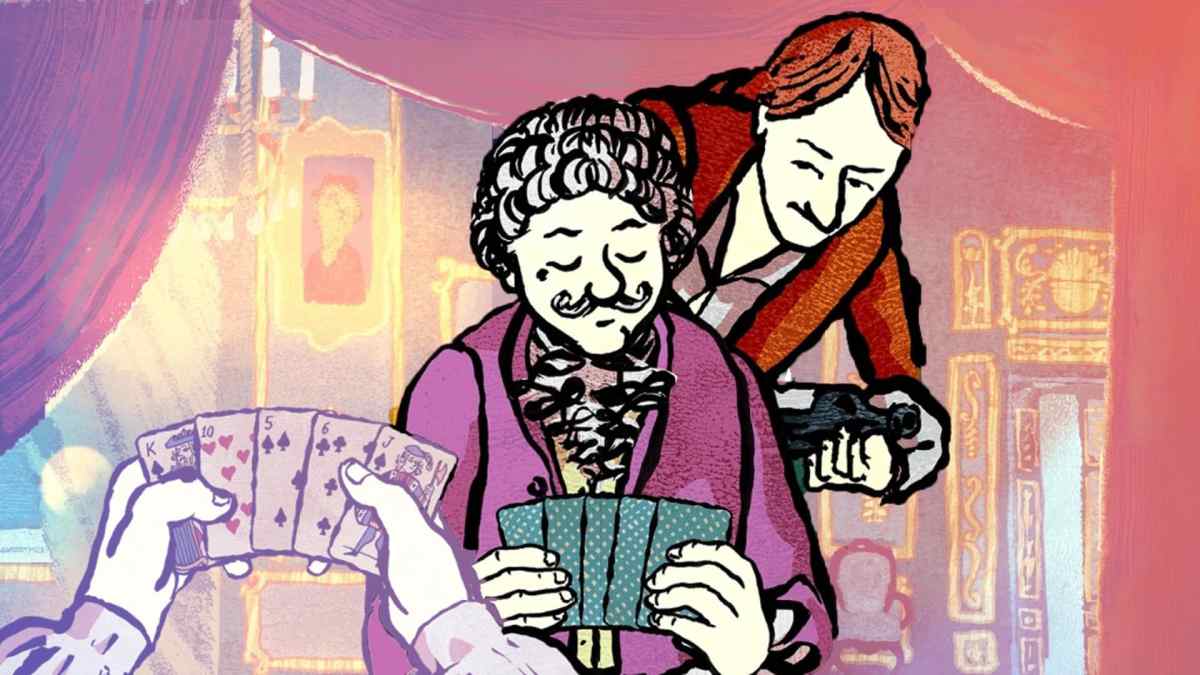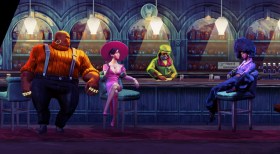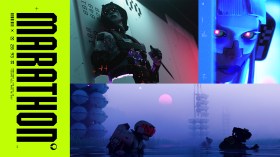To help look back at the year that was 2022, as part of GamesHub’s Game of the Year festivities we asked a variety of people in the games industry to share their fondest game-related memories from the year. Meredith Hall was once again eager to share her thoughts.
Meredith is an award-winning producer and marketer, formerly of Film Victoria, and currently working with a number of game studios in various capacities. She’s now the Marketing Director at Summerfall Studios, which is working on Stray Gods, as well as acting as a producer for studios Strange Scaffold (Space Warlord Organ Trading Simulator) and Aconite (Holovista, Bureau of Multiversal Arbitration).
You can follow Meredith on Twitter.
Authors Note: Look, I’m aware I’m biased, which is why I’m not going to do this, but genuinely one of my absolute favourite game memories of this year is getting the opportunity to work on Stray Gods. I would be remiss both as a musical theatre tragic and marketing director to not mention it. I truly am so excited by it, and feel completely blessed to work on it, especially with the people alongside me. I know if I write an entire paragraph, I’ll be called a shill AND I UNDERSTAND WHY. So anyway, wishlist Stray Gods!
When GamesHub reached out to ask about another write up of my year in games, I had to blatantly ask whether or not it was okay for me to a) once again rant for triple the paragraph length suggested and b) once again talk through my personal year in games, rather than just what I enjoyed.
Read: Valheim, Chicory, and TikTok: Reflecting on 2021 with Meredith Hall
Kindly, I was told to go forth – so if you want to make a complaint, I suggest you go directly to the source.
2022 has felt like a quiet year for games. Watching The Game Awards and seeing the sheer magnitude of game announcements for 2023, knowing full well some of those games probably would have come out this year or last were it not for the pandemic, was a strange feeling. There were, however, three ‘games’ that stuck with me.
God of War Ragnarok
Growing up, I didn’t really have access to a lot of consoles or AAA titles. When I was about 20 and a few years living out of home, I bought a secondhand Xbox 360. Despite console access, being a broke uni student only made things more difficult – I pawned an acoustic guitar I had for $50 at a Cash Converters to buy a copy of Grand Theft Auto 5 a few weeks after it was released – true story.
Now, I tend to set aside one AAA narrative game a year. This isn’t because I have a vendetta against large studios or anything like that (I play hours of Overwatch, FIFA, and Call of Duty every week) – it’s literally that the idea of mentally committing myself to more than one 30-hour game makes me break out in hives, despite the fact that my screen-time very clearly tells me I spend that per week on TikTok.
A lot of my AAA experience now is by osmosis. My partner plays almost everything AAA and I tend to pick up most indies, and then we swap and trade stories. Every now and then we’ll play a game together, usually ones he’s played before. We worked our way through 1.5 Mass Effect games this way, and last year, my partner and I sat down to play the 2018 God of War together. I surprised myself by loving the combat, as well as the story.
This year, we had another observer. I got my tonsils out in November, and my mum came to stay with us. The tonsils came out on the 9th – the release date of God of War: Ragnarok. Anyone who works in video games knows that sometimes explaining your job and what you’re creating to parents that don’t play can be a challenge. I play Call of Duty with my Dad every night, but my Mum has always been less sure about how to take interest.
However, over the course of the week she stayed with us, she sat and played hours of Candy Crush on her phone on the couch, while we played God of War Ragnarok. The questions were slow, at first – ‘Who is that?’, ‘Why is that man so grumpy?’, etc.
Slowly, they became more serious or considered. ‘Wow, this is really pretty.’ ‘Will she forgive him?’
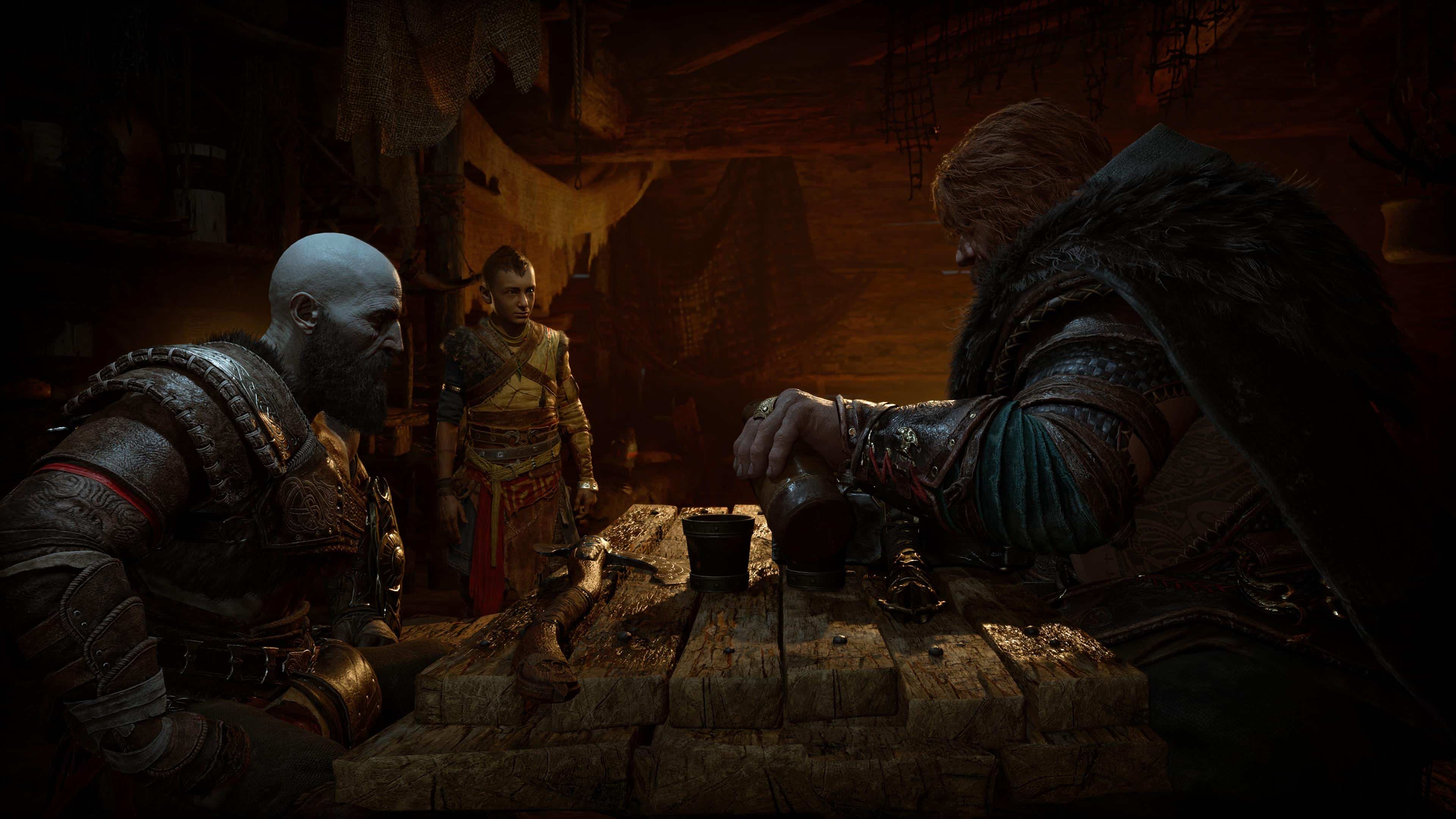
She started to ask if we would play so she could see more of the story. I watched her fall deeper and deeper into this world, the entire time pretending she wasn’t, until she was as attached to Atreus as she was to her phone. Multiple times she even agreed with Kratos’ (sometimes debatable) parenting choices. Not only did the game distract me from my surgery recovery, but so did watching her become more interested. Sharing my experience of the game with friends, colleagues, family – it was a lifeboat for me in that fortnight.
Nothing makes me more excited than seeing people get it. I remember watching a grandmother try a VR game I’d worked on – her first VR game ever – at my first ever convention. I remember lunchtime sessions explaining Animal Crossing to half the staff at VicScreen, and the murmurs of delight when a character gave me a present. I remember my Dad finally hitting double digits in a Call of Duty lobby. These moments stick with me – because it’s like you can hear ‘video games’ click in their heads for the first time. After a few months of us dating, my partner discovered a notebook I had been writing builds for Heroes of the Storm characters in – I know that’s a click moment he remembers, as I explored my first MOBA. I’ve seen Mum click once on an indie – when she played Untitled Goose Game with me – and now on AAA. The rabbit hole of games beckons.
RMIT Graduating Class of 2022

- Play the games at the RMIT Games Showcase webpage.
This year, I got the chance to be an industry mentor for the third year students at RMIT University. Since I don’t personally have any formal education in games, there’s always a little imposter syndrome when I’m asked to engage with university or teaching in any way. Luckily for me, I had a great team of peers and educators around me, but luckiest of all – I had great students.
I’ve seen a lot of projects go from initial concept to a final release in the years I’ve been in games – some up close, but many at a distance. I’ve attended a lot of student showcases over the years, too – seeing what’s being made, supporting friends, and taking a peek at what might eventually be coming in for funding. I’d seen student games at these kinds of showcases before, but looking at them with the context I had, and watching other people enjoy them and ask questions of the developers was such a special moment.
To make anything is hard. Making a whole game end-to-end with a group of people, some potentially strangers, is very difficult. To do that after two years of mostly online learning, nearly your entire time at university? I don’t know that I’d have the resilience, and myself and other mentors marvelled week on week at the way our students tackled difficult problems alongside dealing with other classes, work, and life.
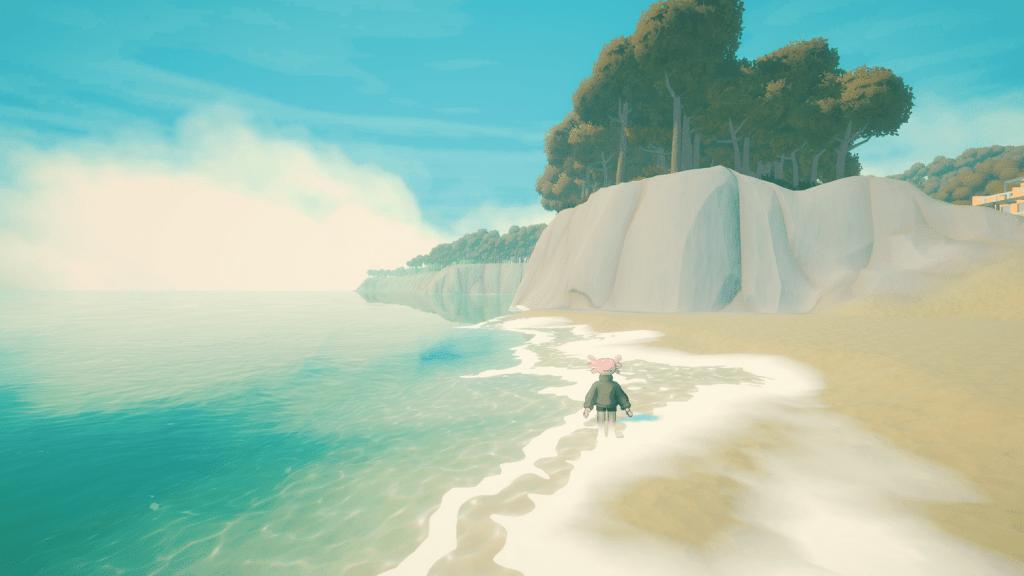
Listening to these students ask insightful questions, play with complicated game mechanics, scope – then inevitably have to adjust that scope, hit conflict, resolve it, and ultimately deliver entirely playable, sometimes incredibly polished experiences was totally rejuvenating for me as a mentor and creator. I try to make time for mentoring wherever possible, but to be able to directly impact and support these students in their final year, right before they move out into the industry, was completely energising. When you work in games for a few years, it can be easy to become disillusioned or frustrated by the industry, and those feelings are valid, but tapping into that excitement and joy is part of what makes us all better creators and colleagues.
The subtle discomfort of TV Head – a surreal isometric game where you wander as a small, TV headed character. That feeling of moving through a theatre where all eyes follow you will stick with me. The laugh-out-loud discovery of Florrae, a relaxing exploration game with ‘Florrae Spirits’ teaching you one by one, while the world slowly populates around you. The quick thinking of Anaglyph, a fast paced, think on your feet platformer where you leap from colour to colour at pace. The beautiful, crisp art of Bell’s Beach, a game that takes fishing to it’s ‘illogical extremes’. I could go on and on about every single project, and the emotion poured into them by each student. Instead, I want to make sure I point people to this page – and these students.
I know it’s a little cliche to say, but these creatives really are the future – they’re bringing new ideas, new approaches – and you should hire them.
Card Shark
I didn’t play as many games this year as I’d hoped or planned – as is tradition. One indie game that thoroughly surprised me was Card Shark. It quietly swept onto the scene in June to great reviews, but I saw so few people talking about it. I wasn’t sure what to expect when I picked it up – I imagined a bit of narrative and a bit of well, cards. Card Shark is a game that self describes as ‘full of cunning, intrigue, and delectable deceit’. In it, you play as a young squire in 18th-century France – hustling your way to the big leagues and big money via cards, subterfuge, and the occasional fencing match.
Read: In Card Shark, truth and virtue get lost in the shuffle
I walked away feeling like I’d learned a little bit of magic. The card tricks weren’t manufactured for the gameplay – they were genuine tactics that I could imagine working. I felt a real sense of accomplishment whenever I managed to nail a trick, fool an opponent, or win a match-up. I found myself wanting to pick up an actual deck of cards – perhaps I could start a new life, run the gamut of a country’s casinos, slowly uncover mysteries. Surely, the only thing stopping me was a lack of card ability, and not my deference to authority and deep fear of trouble.
I am a huge fan of deeply niche, specific games – the more a game picks up on a space or skill I’m unlikely to ever touch, the better. As years go by, more and more of these kinds of games appear as game developers all try to do something new, something different that will stand out amongst the crowd. There’s something delightfully rewarding about building skills you’ll never use, especially as someone that frequently picks up new hobbies, only to leave them in the dust. I’ll probably never sneak away from a table to mark my cards in a secretive code only I understand, but I feel like I have.

The art style is fanciful and all encompassing – an almost watercolour, painted style, with sharp animations. The narrative is cheeky and genuinely interesting, and kept me engaged again and again as soon as I started to wane on the cards or tricks. At times, I complained when I would mess up a trick as they got more complicated, but the satisfaction of completing it was fantastic. I’m no longer super attracted to heavy combat in games, nor do I have the patience for most puzzle oriented games, so finding this satisfaction is a lot harder. This isn’t a game I’d have imagined wanting to exist, but I’m thrilled it does. It’s a beautifully contained experience that never overstayed its welcome, and I look forward to attempting to swindle my cousins at Christmas over a round of Poker, with a stacked deck.
For more on the best games of 2022, explore the rest of our game of the year coverage:
- Cult of the Lamb wins GamesHub’s Game of the Year 2022
- The Best Nintendo games of 2022
- The Best PlayStation games of 2022
- The Best Xbox games of 2022
- The Best PC games of 2022
- The Best mobile games of 2022
- The 5 best indie games of 2022 you definitely didn’t play
- Award-winning developers Fuzzy Ghost on their favourite games of 2022
- Umurangi Generation developer on the impactful moments of 2022
- Tempopo developer Sanatana Mishra’s favourite games of 2022
- Kelsey Gamble’s Top 4 Games of 2022
- David Wildgoose on his Game of the Year for 2022: Elden Ring
Stay tuned for more curated lists from GamesHub staff and special games industry guests.
